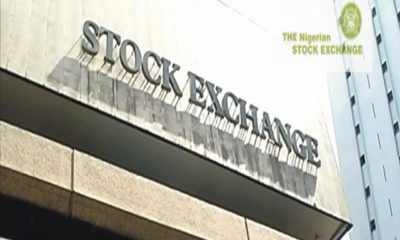The Minister of State for Petroleum Resources (Oil), Heineken Lokpobiri, has accused the former executives of the Nigerian Content Development and Monitoring Board (NCDMB) of mismanaging a whopping $500 million on projects deemed unproductive.
Speaking at a dinner hosted by The Petroleum Club in Lagos, Lokpobiri minced no words as he shed light on what he described as egregious financial mismanagement within the organization.
Lokpobiri, during the interactive session, alleged that substantial sums were squandered on ventures that yielded little to no tangible results.
Among the projects cited was the infamous Brass modular refinery in Bayelsa State, for which a staggering $35 million was purportedly disbursed without any discernible progress.
Similarly, Lokpobiri raised concerns about a $20 million investment in a fertiliser factory, questioning its whereabouts and efficacy.
The minister’s accusations didn’t end there. He underscored what he termed the imprudent disbursement of funds, highlighting instances where significant amounts were released in lump sums against professional advice.
Lokpobiri stressed the need for a comprehensive review of these investments, lamenting the magnitude of the financial losses incurred.
Furthermore, Lokpobiri pointed fingers at the mismanagement of loans totaling approximately $350 million, which were intended to support investors.
According to him, a staggering 90% of these loans ended up as non-performing, exacerbating the financial hemorrhage experienced by the NCDMB.
Addressing the crisis between himself and the incumbent NCDMB boss, Felix Ogbe, Lokpobiri clarified that his intervention was grounded in the oversight responsibilities vested in him as the chairman of the council overseeing the NCDMB.
He stated the importance of due diligence in governance and reiterated his commitment to ensuring transparency and accountability within the organization.
In response to Lokpobiri’s accusations, the immediate past Executive Secretary of the NCDMB, Simbi Wabote, vehemently refuted the allegations, asserting that they lacked substantiation.
Wabote defended the integrity of the Nigerian Content Intervention Fund, hailing it as a pivotal initiative with an impressive 96% payback rate.
Wabote also defended the NCDMB’s investment decisions, citing instances of successful ventures such as the equity investment in Waltersmith’s modular refinery, which has shown promising returns.
He attributed challenges faced by certain projects to external factors and legal disputes, maintaining the organization’s commitment to prudent financial management.
As the allegations continue to reverberate across the industry, stakeholders await the outcome of the government’s review, which could potentially reshape the trajectory of the NCDMB and its approach to investment and governance.


 Forex3 weeks ago
Forex3 weeks ago


 Naira2 weeks ago
Naira2 weeks ago
 Billionaire Watch2 weeks ago
Billionaire Watch2 weeks ago




 Naira3 weeks ago
Naira3 weeks ago




 Naira2 weeks ago
Naira2 weeks ago




 Naira1 week ago
Naira1 week ago




 Naira4 weeks ago
Naira4 weeks ago




 Naira4 weeks ago
Naira4 weeks ago



















